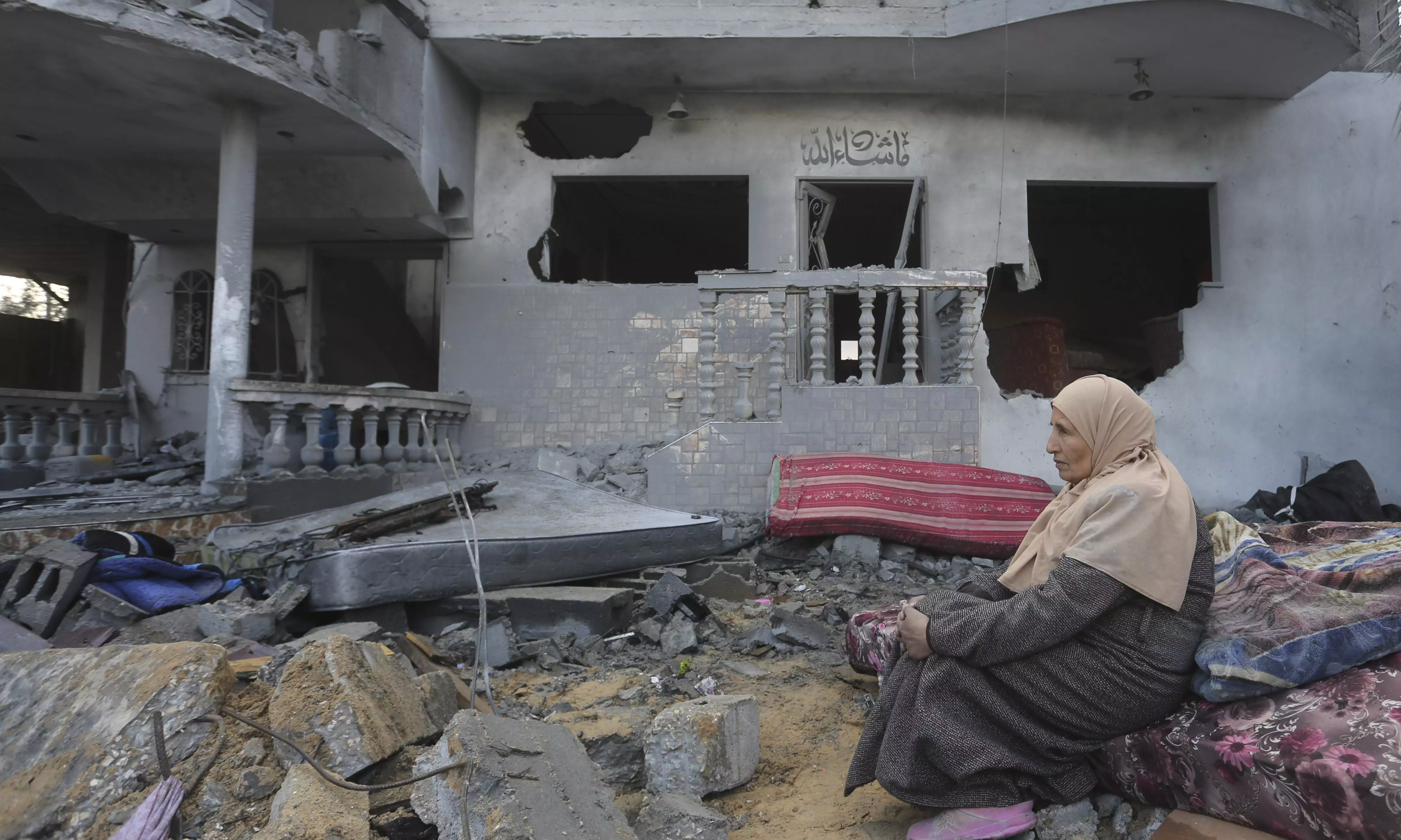
BBC journalists accuse broadcaster of biased coverage of Israel-Hamas war: Report
In a long letter, eight BBC journalists have written to Al Jazeera channel, of not humanising Palestinian victims like they do Israeli victims and not providing historical context in coverage

In the growing divide in mediarooms over the Israel-Hamas war, a few BBC journalists have accused the British broadcaster of bias in its coverage of this bloody conflict.
In a long 2,300-word letter, eight UK-based journalists from BBC have written to Qatar’s Al Jazeera channel, calling out how the BBC corporation’s coverage is allegedly one-sided and tilted in favour of Israel. And that it invests a lot of effort in humanising Israeli victims and not showing the same empathy towards the Palestinians. Importantly, the BBC fails to provide adequate key historical context in the coverage, said the journalists in their letter.
No critical engagement
In its letter, the journalists, who preferred to remain anonymous, said that the BBC has failed to accurately tell the Palestinine story by omitting and not critically engaging with Israel’s claims. Therefore, it is not helping the public to comprehend the human rights abuses unfolding in Gaza, wrote the journalists.
“Thousands of Palestinians have been killed since October 7. When will the number be high enough for our editorial stance to change?," asked the journalists, reported Al Jazeera.
Divided newsrooms
This letter comes in the backdrop of the escalating humanitarian crisis in Gaza, with more than 14,500 Palestinians reported as killed by Israeli bombardment, including at least 6,000 children.
Also, it comes as journalists covering the war are increasingly experiencing "distress" and angst at the coverage which they perceive as being lenient to Israel.
The Israel Hamas war, which was triggered by a Hamas attack on October 7, in which 200 hostages were taken, has divided newsrooms globally into two camps. Views seem to differ over how each side is being portrayed in the media, with many believing that the Israeli victims are ostensibly garnering more sympathy than the Palestinians.
Last week, Anne Boyer, a poetry editor for The New York Times, had quit ostensibly over the paper’s editorial stance. She said she can't write poety admist “warmongering lies”. Jazmine Hughes, a writer for The New York Times, resigned after signing a solidarity statement that described “Gaza’s people” as “victims of a genocidal war”.
Use of language
Journalists are also protesting against the use of language in the Israel-Hamas war reportage. For example, the BBC journalists in their letter stated BBC deploys terms like “massacre” and “atrocity” only for Hamas making it seem as this group is the only instigator and perpetrator of violence in the region.
“This is inaccurate but aligns with the BBC’s overall coverage," wrote the BBC journalists in the letter, stated the report.
Essentially, the journalists said that the Hamas assault, while “appalling and devastating…does not justify the indiscriminate killing of thousands of Palestinian civilians”. And the BBC is failing to question the logic that it does.
Humanise coverage of Palestinians
Pleading for equal coverage of all citizens, the BBC journalists wanted BBC to "humanise" coverage of Palestinian civilians, which has been “lacking”. They dismissed BBC claims that it could not better cover stories in Gaza because of the challenges of gaining access to the Gaza strip as a “poor excuse”.
BBC has made little attempt to fully utilise the abundant social media content from brave journalists in Gaza and the West Bank, they said. There have been isolated examples of telling sensitive stories of Palestinians but this has not been consistent, the journalists said.
As the Western countries’ appetite for Israel’s attacks dropped – the BBC, now, has made more effort to humanise Palestinian civilians, the journalists admitted but this feels "too little too late", the report added.
They believed that the stance of the UK and US governments have undue influence on media coverage. The journalists felt the corporation doesn’t empathise with Palestinians as they do with Ukrainains. And felt “sickened by the senseless loss of civilian life” during the Hamas attacks.
Besides all this, guests on BBC shows were quick to “condemn Hamas” but they are not asked to ‘condemn’ the actions of the Israeli government, however high the civilian death toll in Gaza.
No backgrounders
Further, the BBC journalists questioned the fact that BBC fails to provide audiences with important background about Israel’s occupation and the history of Palestinian suffering.
News updates and articles fail to add critical historical context – on the 75 years of occupation, the Nakba, or the "asymmetric death toll across decades”. The Nakba, or catastrophe, is about the displacement and dispossession of Palestinians between 1947 and 1949, when Zionist paramilitaries and then Israel’s newly-formed army destroyed more than 500 Palestinian villages and towns. About 15,000 Palestinians were killed, and more than 750,000 were forcibly displaced from their land.
“The BBC has often called the ongoing conflict ‘complex’. It is no more complex than any other conflict,” the letter said, adding that it is their job cut through rhetoric and misinformation; to explain what is happening and what has led to this.
BBC denies allegations
A BBC spokesperson has denied all these allegations, said the Al Jazeera report.
According to the BBC, it is “one of the only news organisations” to have journalists inside Gaza offering “on the ground reporting”. In their defense, the corporation said they have included many stories of Palestinian victims and first-hand testimony from civilians, doctors and aid-workers in Gaza, as well as a Panorama documentary, featuring human stories from both sides.

